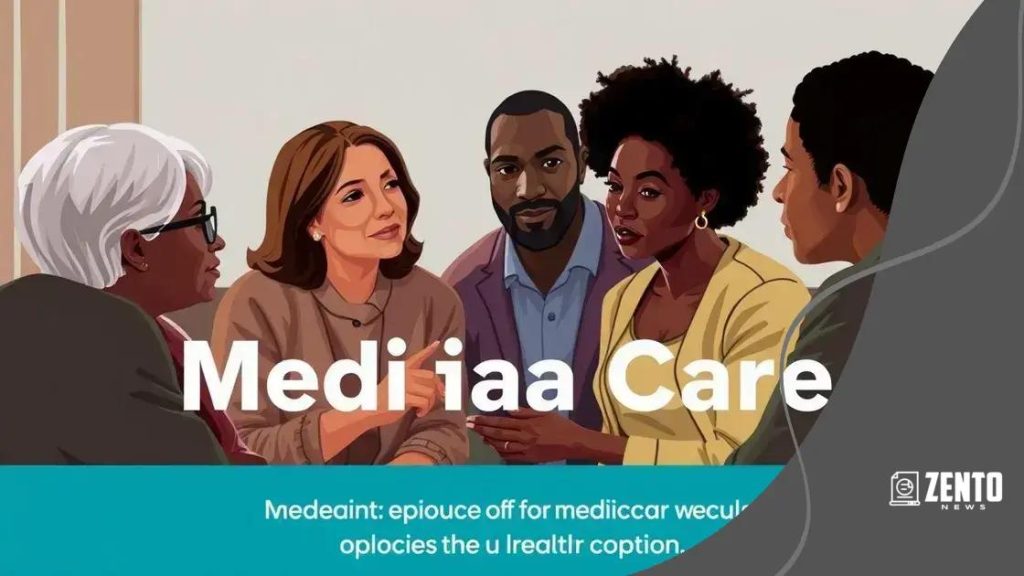Medicaid rules revised: what you need to know

Anúncios
The recent Medicaid rules revised expand eligibility, enhance service coverage, and simplify the application process, significantly improving access to essential healthcare for low-income individuals and families.
Medicaid rules revised can feel overwhelming, but understanding these changes is essential for ensuring you have access to healthcare. Have you checked if these updates affect your benefits?
Anúncios
Overview of recent medicaid rule changes
Understanding the overview of recent Medicaid rule changes is essential for anyone navigating the healthcare system. These modifications can affect a large number of individuals relying on Medicaid for their health needs.
The updates primarily focus on expanding accessibility and simplifying processes. Many of these changes aim to enhance patient care and ensure that more people can utilize available services.
Key Areas of Change
Several significant areas are impacted by these revisions. These include:
Anúncios
- Eligibility criteria adjustments: New rules have modified who qualifies for Medicaid benefits, making it easier for some individuals to gain access.
- Income limits: The revised regulations have updated income limits, which affects eligibility especially for low-income families.
- Streamlined application process: Efforts have been made to simplify the application process, reducing wait times and paperwork for applicants.
- Expanded benefits: Certain services, such as mental health care and preventive services, have been broadened to ensure better healthcare coverage.
In addition to these areas, states are also encouraged to implement changes that better meet their individuals’ needs. As a result, beneficiaries should stay informed about potential new benefits and services tailored for them.
Therefore, the importance of understanding the Medicaid rules revised cannot be understated. Being proactive allows individuals to better advocate for their health needs and utilize their available resources efficiently.
Implications for healthcare access
The implications for healthcare access resulting from recent changes in Medicaid rules are significant and far-reaching. These updates affect how individuals can access essential medical services.
One of the major implications is the increased number of people eligible for Medicaid. This expansion is crucial for low-income families who may have previously struggled to obtain coverage. With the new eligibility criteria, more individuals can now receive necessary healthcare without worrying about high costs.
Improved Access to Services
The revisions have also led to a broader range of services being covered under Medicaid. Beneficiaries can now access:
- Mental health services: Increased coverage for mental health support is a key area of improvement.
- Preventive care: More emphasis is placed on preventive measures, allowing individuals to receive check-ups and screenings without additional charges.
- Transitional care: Services that help patients move between different providers are now prioritized.
- Telehealth options: Virtual healthcare access has become more widespread, ensuring that people in remote areas can still receive care.
Furthermore, simplifying the application process means that individuals can enroll in Medicaid quickly. Recent reforms have reduced bureaucratic hurdles, allowing quicker access to essential healthcare services. This change is vital for those experiencing urgent medical needs.
However, while these changes improve access, challenges remain. Some states may not fully implement the changes, leading to disparities in coverage availability. Continuous advocacy is essential to ensure that these reforms benefit all individuals equally.
Key benefits of the revised medicaid rules

The key benefits of the revised Medicaid rules are transforming how individuals access healthcare. These updates focus on making healthcare more equitable and accessible for all.
One major advantage is that more individuals now qualify for Medicaid. This change significantly expands coverage for low-income families, giving them access to necessary medical services. Eligibility criteria have been adjusted to allow a wider range of people to enroll, which is a significant step forward.
Enhanced Coverage Options
The revisions also introduce enhanced coverage options. Beneficiaries can expect:
- Comprehensive preventive care: Services like annual screenings and vaccinations are now more accessible.
- Increased support for mental health: Behavioral health services receive more attention and funding, addressing critical needs.
- Expanded services for chronic conditions: Individuals with ongoing health issues can receive better management and support.
- Telehealth services: Access to care via telehealth is now more widely supported, allowing for easier consultations.
Moreover, the streamlined application process simplifies enrollment, making it easier for individuals to gain access to crucial services. This aspect is vital for those who need timely medical care, as reduced wait times can lead to better health outcomes.
Overall, the revised Medicaid rules focus on the individual’s needs. With these changes, beneficiaries can enjoy a more robust healthcare experience, ensuring they receive the care they deserve without the burdens of high costs.
Steps to ensure compliance
Understanding the steps to ensure compliance with the revised Medicaid rules is crucial for both providers and beneficiaries. These steps help individuals and organizations navigate the updated regulations efficiently.
The first step involves familiarizing yourself with the new rules. This can be accomplished by reviewing updates from state Medicaid agencies, as each state may implement the rules differently. Staying informed helps in understanding eligibility criteria and service availability.
Documentation and Record Keeping
Accurate documentation is essential in ensuring compliance. Providers should maintain thorough records of:
- Patient eligibility: Keep detailed records proving a patient’s eligibility status under the new rules.
- Provided services: Document all services rendered to substantiate claims for reimbursement.
- Coordination of care: Ensure there are records showing how patient care coordination is managed.
- Compliance training: Regularly train staff on compliance requirements to ensure everyone understands the rules.
Additionally, conducting regular audits can identify compliance issues early. These audits should focus on claims submitted and ensure that they align with the services provided to beneficiaries. By identifying discrepancies, providers can address them promptly.
Engaging with Medicaid representatives can also offer valuable insights into compliance requirements. These representatives can clarify any uncertainties regarding the rules, helping to maintain adherence to regulations.
Ultimately, a proactive approach to understanding and implementing the revised Medicaid rules will ensure compliance and improve patient care, benefiting both providers and individuals relying on these essential services.
Resources for navigating medicaid changes
Navigating the complex landscape of Medicaid changes can be challenging. However, several resources for navigating Medicaid changes can help beneficiaries and providers stay informed and compliant. Understanding these resources is key to accessing the benefits available under the revised rules.
One vital resource is the official Medicaid website. This site provides up-to-date information on eligibility, benefits, and services available in each state. Checking this site regularly can help keep you informed about changes as they happen.
Community Assistance Programs
Many community organizations also offer assistance. These programs can provide:
- Enrollment help: Trained staff can guide individuals through the application process.
- Educational workshops: These sessions can explain the new rules and how to utilize benefits effectively.
- Personalized support: Some organizations offer one-on-one support to address specific questions or issues.
- Access to advocacy groups: Advocacy groups work to ensure that beneficiaries understand their rights and resources.
Furthermore, local health departments can also be a valuable source. They often hold informational sessions that cover Medicaid updates and can provide printed materials for easier reference.
Online forums and social media groups can serve as informal resources as well. Engaging with others who are navigating similar challenges can provide support and peer advice.
Utilizing these resources allows individuals to stay informed about the Medicaid rules revised, ensuring they can take full advantage of their benefits and receive the healthcare services they need.
FAQ – Frequently Asked Questions about Revised Medicaid Rules
What are the recent changes in Medicaid rules?
The recent changes in Medicaid rules include expanded eligibility, improved access to services, and a simplified application process.
How can I find resources to help navigate these changes?
You can visit official Medicaid websites, engage with community organizations, and seek assistance from local health departments for guidance.
What steps should I take to ensure compliance with the new rules?
To ensure compliance, stay informed about the new regulations, maintain accurate documentation, and conduct regular audits of service provided.
What benefits do the revised Medicaid rules provide?
The revised Medicaid rules offer several benefits, including broader access to healthcare services, increased support for mental health, and easier enrollment processes.





